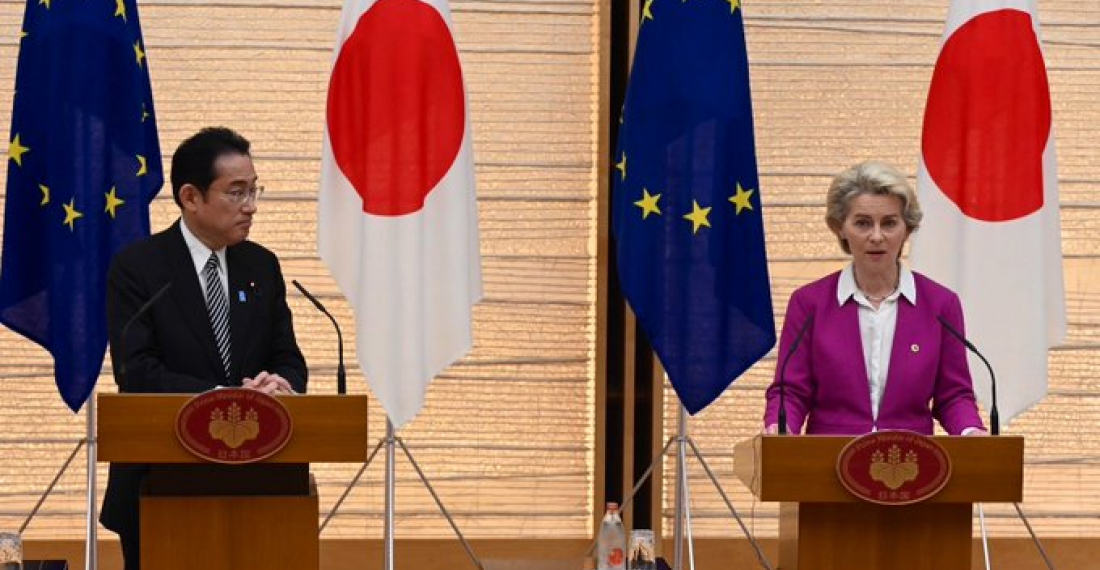Russia is the “most direct threat” to the international order because of its invasion of Ukraine, European Commission President Ursula von der Leyen said Thursday (12 May) in Tokyo.
Russia “is today the most direct threat to the world order with the barbaric war against Ukraine, and its worrying pact with China”, she said after meeting Japanese Prime Minister Fumio Kishida along with European Council President Charles Michel.
The two are in Tokyo for an annual EU-Japan summit that comes with much of the international community rallying to pressure Moscow over the Ukraine war, with concern also growing about China’s role.
“Russia’s invasion of Ukraine is not just a matter for Europe, but it shakes the core of the international order including Asia. This must not be tolerated,” said Kishida, whose government has joined tough sanctions on Moscow, including on energy.
“Our cooperation in Ukraine is critical in Europe, but it’s also important in the Indo-Pacific and we also want to deepen our consultation on a more assertive China,” said Michel.
“We believe that China must stand up to defend the multilateral system that it has benefitted from in developing its country.”
Von der Leyen thanked Japan for assisting Europe with its energy supplies:
I thanked Prime Minister @kishida230 for the admirable solidarity Japan showed by diverting some of its LNG supplies to Europe.
— Ursula von der Leyen (@vonderleyen) May 12, 2022
It was at a crucial time for us, at the height of the European heating season.
We will not forget this. pic.twitter.com/pIgEoB9BtO
Von der Leyen said the EU and Japan were stepping up cooperation including with the launch of a digital partnership, a first for Europe, which would focus on competitiveness and security in the field.
She said the two sides would also work to “diversify and strengthen our supply chains”.
“This is important because there are materials and technologies that have become essential to our economy and everyday lives, like semiconductors for example,” von der Leyen said.
“We must be able to count on trustworthy supply chains.”
On his part, Japanese Prime Minister Kishida said “the Russian invasion of Ukraine is a clear violation of international law. Killing a large number of innocent civilians constitutes a grave violation of international humanitarian law and a war crime.” Kishida sa
Japan reacted angrily on 22 March after Russia withdrew from peace treaty talks with Japan and froze joint economic projects related to the disputed Kuril islands because of Japanese sanctions over Russia’s invasion of Ukraine.






